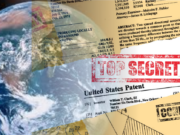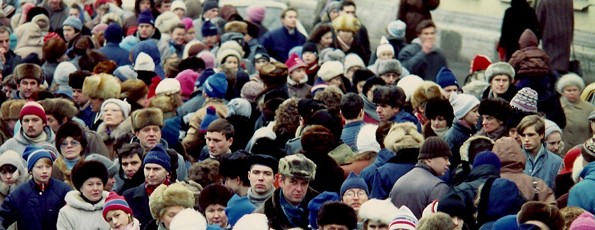by Mary W Maxwell, PhD, LLB
For every member of any mammal species, including primates, selfishness is a necessity. That is, one has to look out for oneself. Most mammals act alone in food-getting, although a relatively small number of species do have group hunting. Famously, the wolf hunts in a pack.
No mammal species, other than humans, has a storage system for food that is owned or controlled by the group.
Ants and bees do have such a thing but we are talking about mammals here. There are no ‘silos’ for canines, rodents, or primates. A squirrel may bury nuts but only for herself or her young.
Another area in which a mammal mostly acts on its own is in defending against attack. Granted, there is group-to-group attack in some species. (Hyenas have even been observed in the practice of genocide – they wipe out other hyena groups that appear to be gaining in numbers.)
Often, group defense is entwined with territoriality – if every member of the group does what is required to keep the invader out, this makes the home ground safer for all members. I agree that this is a form of dependence of the individual on the behavior of all.
Also, some mammal species have leaders that can direct an action against attackers. But no mammal species comes close to what humans have by way of dependence on the larger society. And right now I think this is causing us to be in big trouble as individuals.
Human Dependence on Society
At some point in time, humans must have evolved the characteristics that make each individual very dependent on others. Of course it could be that such traits are not biologically evolved but were developed culturally. (For purposes of speeding up the argument here, I am going to assume that anything for which we seem to have an instinct is a biological trait.)
I will take for granted that the genealogy of hominids (of which our knowledge is rather spotty) involved a move from an ancestral species related to chimpanzees, to the recognizable creature Homo sapiens. I won’t be interested here in any of the obvious changes, such as hairlessness, language, or the development of a pair-bond. I am concentrating only on group-dependence.
Having said that I consider an observable instinct to be a sign that a trait evolved (rather than was culturally added), I will discuss the instinct for selfishness.
Confessions of a Sociopath
I was surprised to read a book, “Confessions of a Sociopath” (2013) by ME Thomas. She explains how her mind works in a way that (she admits) is not typical of our species.
As she keeps her real identity secret, I can’t check up on her story but it sounds very plausible to me. She is an American lawyer who claims to have no conscience and no empathy. She is driven to succeed at various tasks in pursuit of her own gain, no matter at whose expense.
Thomas says she was raised as a Mormon and thus was given very specific rules, even about what to wear, and so she learned to follow rules to get social acceptance. But whenever she can cheat, she does. She likes to use charm to fool someone into trusting her. She loves to “conquer.”
My background in sociobiology inclines me to think of Ms Thomas’s selfishness as something we all inherited, but that for most of us it’s covered over or compromised by other evolved traits related to altruism. (Note: Thomas estimates 1 to 4% of the population are sociopaths.)
Altrusim
I believe the statements I will now make about altruism are well established. Scientists remained unaware of the biology of altruism until the late William D Hamilton proposed, in 1964, that kin altruism is heritable. Of course everyone knew that a female animal sacrifices herself for her young. What Hamilton showed is that we have, in a mathematically predictable way, a willingness to be generous even to third cousins.
I agree with Richard Dawkins’ book, “The Selfish Gene,” that it is the gene, not the animal, that is selfish. Dawkins said the gene desires (as it were) to be replicated in future generations, and so causes its owner to do things that will further that cause. For instance, it can urge a male to inseminate as many females as possible. But that philosophical point can be left out of our discussion.
The next contributor to sociobiology was Robert Trivers. In 1970 he showed that a species could evolve a trait for “reciprocal altruism.” One can be disposed to do favors in hopes of getting a favor in return. We go berserk, don’t we, when someone does not live up to his obligations to us?
It remained for EO Wilson, in his 1975 book “Sociobiology,” to put together the story of many species, including ants and humans, and sort out the different kinds of altruistic guidelines that are in force.
A Person Not “Afflicted” with Sociopathy
To simplify (and to put it unscientifically), I think I have the following altruism-related traits, probably from birth, but enhanced by my teachers or the general culture:
I care about several other individuals, both relatives and friends. I am willing to work hard for a helpless person in my care. (I’ve never had any pets, but if I did I’d probably work for their benefit, too) I seek to be trusted and to keep up a reputation of trustworthiness. I play fair.
The confessions of ME Thomas, the sociopath, are foreign to me. She says she never feels guilt or shame. But, as I said, I don’t see her as having deviant traits – she has ones that we all have. In other words, I assume I have all of her selfishness, but that this gets cut back by the demand for altruism. I curtail my drive for success in instances where Ms Thomas would not.
So how does “the demand for altruism” work? I assume it is felt by me emotionally. The sociopath does not have the same set of controlling emotions (such as those that would prompt remorse for having hurt someone). Whatever the chemical connections are in my brain, they are missing in ME Thomas’s brain.
Are “Empaths” Silly?
I highly recommend Thomas’s book, “Confessions of a Sociopath.” She refers to the rest of us – the normals – as “empaths” – i.e., capable of empathy. Naturally she views us as fools – especially as she is often able to use an empath’s foolishness to her advantage. My position is that neither empathy not sociopathy is silly. They both simply exist. We had better figure out how to deal with this.
The problem that her book presents to me is: How should normals cope with the presence in society of bad people? She is bad by definition, I believe. Her deviousness and perfidy possibly explain how the “men at the top” do what they are doing to us. But I am not going to pursue that issue here.
Rather, for now, I want to make the case that I started to make at the beginning of this article. HUMAN ARE DEPENDENT ON SOCIETY.
Wow, Are We Dependent!
The average person cannot get all he needs without there being, say, a silo of food. Such is the complex division of labor in modern society that hardly anyone forages for daily nutrition. Neither courage nor skill can help an individual survive if the social arrangement of food-getting breaks down.
I once saw a cartoon that depicted a wealthy couple. The husband was boasting to a friend “Cynthia here has figured out how we can be self-sustaining in food. We’ll buy our own supermarket.” Ha ha, very funny.
This article is not about food. It is about social dependence. We hardly have any academic science to investigate the matter. Certainly we’ve had some excellent thinkers in the last three centuries, but none of them were aware of the biology of society. There was no sociobiology to compare the social habits of species.
Even now there is no one that I know of, shedding light on the human problem of social dependence. Rather, such things have been discussed in ideological terms. A socialist says we ought to – and are inclined to – be helpful to our fellow man. A conservative says we are truly individualistic and ought to rely on ourselves.
Both of those positions are of no use in dealing with the fact that the individual is almost helpless today on his own. I dare say, our social and political theory is all wrong, in that it fails to mention this vital fact.
It’s time to face the new facts, especially as there are now seven billion of us.
— Mary W Maxwell is a mammal living in Australia. Her website is maryWmaxwell.com.































In a 1976 study anthropologist Jane M. Murphy, then at Harvard University, found that an isolated group of Yupik-speaking Inuits near the Bering Strait had a term (kunlangeta) they used to describe “a man who … repeatedly lies and cheats and steals things and … takes sexual advantage of many women—someone who does not pay attention to reprimands and who is always being brought to the elders for punishment.” When Murphy asked an Inuit what the group would typically do with a kunlangeta, he replied, “Somebody would have pushed him off the ice when nobody else was looking.”
Kunlangetas of the world, unite!
Oops — I think they have already united.
Thanks, Terry. Thanks, Jane M Murphy.
https://www.youtube.com/watch?v=jY0hARbzfgg
At Rumor Mill, I have posted the comments by the Americans and the Russians as to plans for diplomacy re Syria:
http://www.rumormillnews.com/cgi-bin/forum.cgi?read=31676
Mary, I believe you are describing, a self evident principle that human beings can achieve in association that which cannot be achieved alone.
A marriage, a family, a local community, a tennis club, a book club, and a Nation are all evidence of negotiated cooperation believing the common purpose is worthy enough to surrender some individual freedom.
Broadly speaking it is the principle of the “common good” or “community” but these words are mangled to justify growth, productivity, war and central planning of various flavours.
The critical question is how to measure the efficiency of these associations.
My opinion is the only sane calibration is to measure the efficiency is in terms of contentment, happiness and security.
The associations must be voluntary, though, fate plays a hand in our birth into a particular family, culture and place.
Our growth to maturity extends our conscious understanding of how we relate to others beyond our self interest.
Balancing the priority of our own self with selflessness is a conundrum.
An extreme example I could pose is Rachel Corrie who sacrificed herself totally in the face of injustice being experienced by Palestinians.
Where was everyone else? At the football, watching TV, shopping, playing with their children, earning an income, visiting their family, reading about Middle East politics, lobbying against the crimes of power, participating in a human rights campaign or celebrating romance watching a sunset on an idyllic beach.
Was Rachel reckless and without perspective or are all the rest of us who allow injustice just selfishly compromised?
Thank you, Christopher, for reminding us of Rachel Corrie.
There are 4 parts to my essay, and in the last part I will try to deal with your suggestions.
Problem solvered.. I am self sufficient for all my food requirements, enjoying regular feasts of long pig, ( http://dictionary.reference.com/browse/long-pig ) – stewed sociopath a particular favourite, but I can not solve the 7 billion problem all by myself. If anyone has any recipie ideas, I’m all ears!
*TIP: Don’t eat clowns, they taste funny.
Fair Dinkum, what’s got into you?
“The Somosomo people were fed with human flesh during their stay at Bau, they being on a visit at that time; and some of the Chiefs of other towns, when bringing their food, carried a cooked human being on one shoulder, and a pig on the other; but they always preferred the “long pig,” as they call a man when baked. [“FEEJEE.–Extract of a Letter from the Rev. John Watsford, dated Ono, October 6th, 1846.” in “Wesleyan Missionary Notices,” Sept. 1847]”